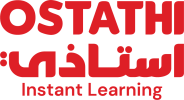English Education in Crisis: What Needs to Change?
In an effort to address one of the most persistent challenges in Jordan’s education system—the low proficiency of students in English language skills the Abdul Hameed Shoman Foundation recently held a high-level national roundtable titled "Weak English Skills among Jordanian Students: Challenges and Solutions.” The session, held under the patronage of the Minister of Education and Minister of Higher Education and Scientific Research, Dr. Azmi Mahafzah, brought together academics, policy-makers, educators, and practitioners from across Jordan to diagnose the roots of the problem and discuss actionable solutions.
This national dialogue did not emerge in isolation. In recent years, studies by the Jordan Strategy Forum and other educational Research organizations have repeatedly pointed to declining outcomes in English language education across public and private schools. The issue is not merely academic; in today’s globalized job market and increasingly digital world, a student's ability to communicate effectively in English can determine access to higher education opportunities, professional growth, and global engagement. The problem, as the forum revealed, lies not only in the classroom but also in the broader educational ecosystem curricula, teacher training, societal perceptions, and resource availability.
Ministry of Education’s Strategic Response
Dr. Mahafzah, in his keynote remarks, acknowledged the magnitude of the problem while outlining the Ministry’s evolving strategy. He emphasized that the Ministry of Education, in cooperation with the National Center for Curriculum Development (NCCD), is actively modernizing the school curriculum with a sharper focus on practical language skills especially listening and speaking, which have long been marginalized in Favor of memorization and grammar-heavy instruction. These efforts, he noted, are part of a broader educational reform aligned with Jordan’s national human capital development goals.
Part of this modernization includes a paradigm shift in how teachers are trained and evaluated. Instead of preparing students for exams that test rote knowledge, the Ministry is working to equip teachers with tools that foster critical thinking, creativity, and communication skills central to language acquisition and essential for success in the 21st century. Furthermore, new assessment strategies are being developed to reflect these competencies, shifting from multiple-choice evaluations to performance-based and interactive tasks.
Shoman Foundation’s Role in Shaping Educational Discourse
Opening the session, Valentina Qussisiya, CEO of the Abdul Hameed Shoman Foundation, contextualized the issue as one of national importance. English, she argued, is no longer a luxury skill it is a necessity. In Jordan’s competitive academic and professional landscape, weak English proficiency severely limits students' opportunities. She emphasized that improvement must come not from isolated initiatives but through integrated, cross-sectoral collaboration that brings together curriculum designers, education ministries, civil society, and schools.
Her remarks underscored the role of the Shoman Foundation not only as a convenor of dialogue but also as a long-term stakeholder in supporting cultural and educational development in Jordan. Through this roundtable, the Foundation aimed to spark a nationwide conversation grounded in research, lived experience, and strategic foresight.
Diagnosing the Problem: Four Strategic Focus Areas
The roundtable was structured around four core themes, each led by a group of researchers and experts. These sessions offered a deeper look into the underlying causes of the English language learning crisis in Jordan and proposed targeted solutions.
The first axis explored historical, societal, and economic factors. Researchers noted that language learning is deeply embedded in social context; where English is viewed as foreign or elite, students often approach it with anxiety or disinterest. Socioeconomic inequality also affects exposure, as students in urban or private school environments often have greater access to quality English education and extracurricular practice.
The second thematic focus was on curriculum design and co-curricular opportunities. Experts argued that while the content of the national English curriculum has evolved, implementation remains uneven. Teaching remains overly textbook-centered, with little time allocated to interaction, conversation, or cultural engagement. Supplementary activities debates, reading clubs, drama, and digital projects are either absent or underutilized in most public schools.
The third axis examined teacher qualifications, training, and motivation. Speakers highlighted that many English teachers enter classrooms with limited fluency and outdated pedagogical methods. Continuous professional development is infrequent at best, and there is a pressing need for programs that build teachers’ own confidence in spoken English and modern teaching strategies. Motivation is also a concern low wages, limited career progression, and inadequate classroom support often lead to burnout and stagnation.
The fourth and final axis presented field-based observations and educator testimonies, offering a grounded perspective on the day-to-day realities inside Jordanian classrooms. Several education professionals shared original papers that reflected their direct experiences with students and evolving classroom dynamics.
Ms. Kholoud Abu Tayeh delivered a paper titled "The Digital Revolution: Blessing or Burden for English Language Learners?” in which she explored the dual-edged impact of technology on students’ learning habits and language development. Dr. Iman Ghanem contributed a presentation entitled "A Vision from the Educational Field,” offering a reflective analysis rooted in practical realities and system-level challenges. Meanwhile, Ms. Faiza Abu Dari shared her work titled "A Contemplative Look at the State of English Language Education,” discussing structural issues and student motivation. Lastly, Ms. Maha Saqf Al-Heet presented "Causes of Weak Speaking and Writing Skills among Jordanian Students,” identifying linguistic, curricular, and pedagogical gaps that hinder communicative competence.
Together, these insights underscored the complexities faced by educators on the front lines of English language instruction highlighting how overdependence on textbooks, lack of active learning, and systemic neglect of practical language use continue to hamper student progress.
Toward a National Action Plan
The session concluded with a call for an integrated action plan that addresses the issue holistically. Key recommendations included:
- Redesigning English teacher preparation programs at universities
- Embedding spoken English and listening activities into daily lesson plans
- Expanding access to extracurricular English-language programs in public schools
- Strengthening the role of digital platforms and educational technology
- Creating community engagement strategies that promote English as a tool for inclusion, not exclusion
Ammon News – Ministry of Education and Reform






